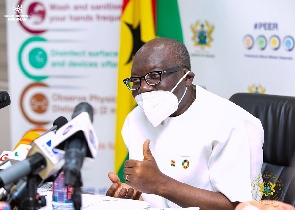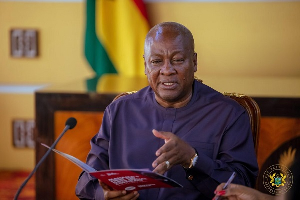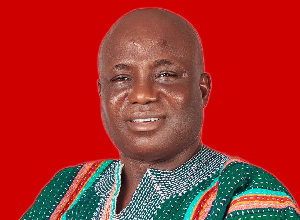The International Monetary Fund (IMF) has backed government’s recent policy towards fiscal consolidation as captured by the 2021 budget.
Leader of IMF’s mission Carlo Sdralevich made these observations at the end of virtual meetings under Article IV between Wednesday, April 28 and Wednesday, May 12.
“The 2021 budget’s recent policy pivot towards fiscal consolidation is an important step in the right direction and a difficult one in a pandemic,” he said.
“Fiscal consolidation should be deepened and anchored around debt and debt service reduction to create space for social, health, and development spending.
“Given the social and equity implications, fiscal consolidation should rely more on progressive revenue and spending measures, while guaranteeing fiscal support to the most vulnerable and social safety nets.”
Read Carlo Sdralevich's observation below:
“Ghana has managed very effectively the COVID-19 outbreak in the country, and thus succeeded in protecting lives. Almost 93,000 cases have been confirmed, and unfortunately 780 people have died as of today. The launch of mass vaccine rollout has been a breakthrough, with the administration of approximatively a million doses as of end-May.
“The impact of the pandemic on the economy has been severe. Real GDP growth slowed to 0.4 percent in 2020 from 6.5 percent in 2019, due to lower activity in the extractive industries and a collapse in hospitality and retail services, including the informal sector that especially employs female workers. Inflation spiked to double digit because of food price pressures, before falling to 8.5 percent in April 2021.
“Policy interventions in 2020 were also critical to safeguard livelihoods and paved the way for a faster rebound of economic activity. Real GDP growth is projected at 4.8 percent in 2021, driven by a rebound in mining and services. Inflation is expected to remain around the central bank’s target of 8 percent by end-2021. The CARES program has the potential to be transformative and inclusive for the Ghanaian economy, buttressed by its emphasis on SMEs and digitalization as well as leveraging the AfCFTA.
“Government interventions in 2020 also exacerbated pre-existing fiscal rigidities and public debt vulnerabilities. The government deficit, including energy and financial sector costs, reached 15.5 percent of GDP, while annual gross financing needs exceeded 20 percent of GDP. Public debt rose to 78 percent of GDP in 2020, from 64.4 percent in 2019, including ESLA of GHs7.63 billion in 2020.
“The 2021 budget’s recent policy pivot towards fiscal consolidation is an important step in the right direction and a difficult one in a pandemic. Fiscal consolidation should be deepened and anchored around debt and debt service reduction to create space for social, health, and development spending.
“Given the social and equity implications, fiscal consolidation should rely more on progressive revenue and spending measures, while guaranteeing fiscal support to the most vulnerable and social safety nets.
“Despite progress in rationalizing power generation, the financial viability of the energy sector affects people’s daily life and will remain a drag on productivity and a driver of public debt if not addressed decisively. Improving efficiency and collections remains a priority to achieve substantial savings.
“The planned audits of COVID-19 emergency spending and of arrears accumulated in 2020—in addition to routine budgetary reporting practices—are welcome as they will help account for the increase of spending and its effectiveness, and provide lessons to improve the robustness of Public Financial Management systems.
“The team had collaborative and constructive discussions with Vice President Bawumia, Finance Minister Ofori-Atta, Governor Addison of the Bank of Ghana, other senior government officials, Finance Committee of Parliament, private sector representatives, and civil society organizations.”
Business News of Saturday, 15 May 2021
Source: 3news.com













